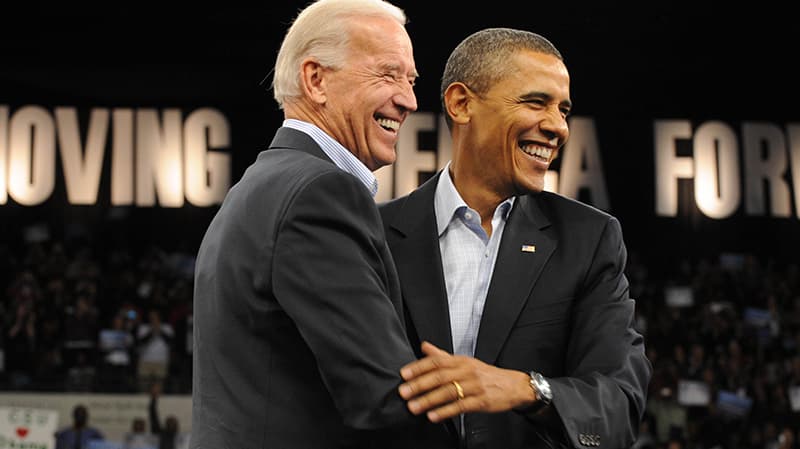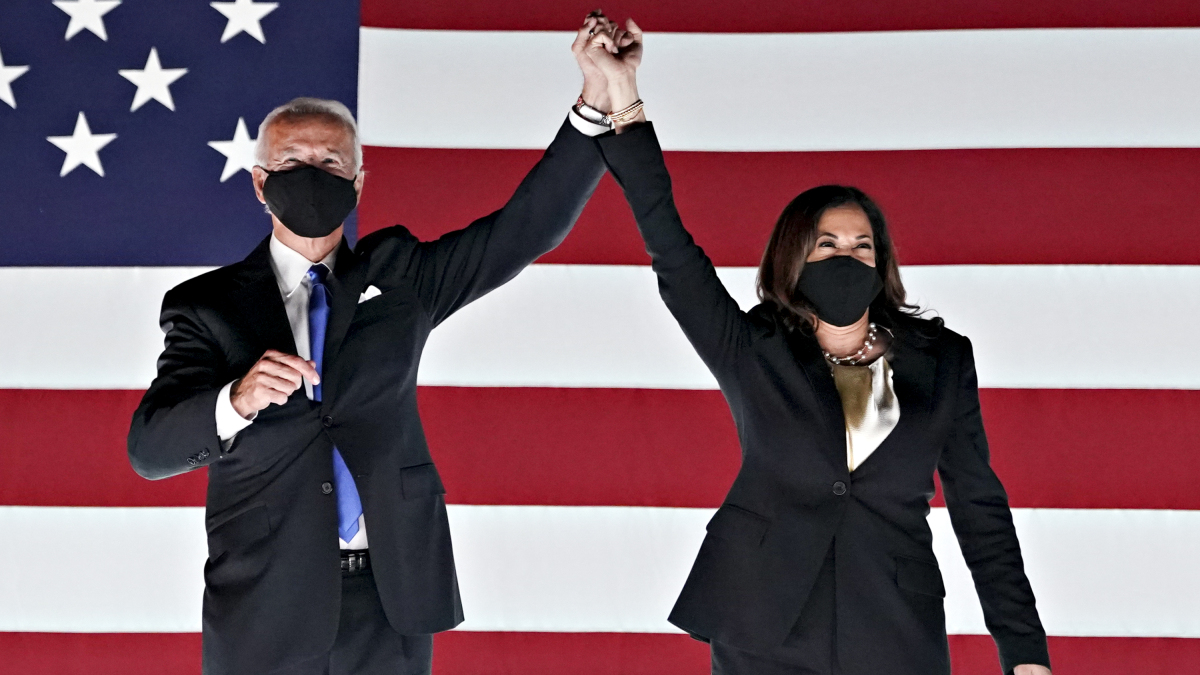THE PRESIDENT Joe Biden
President Biden represented Delaware for 36 years in the U.S. Senate before becoming the 47th Vice President of the United States.
Joseph Robinette Biden, Jr. was born in Scranton, Pennsylvania, the first of four children of Catherine Eugenia Finnegan Biden and Joseph Robinette Biden, Sr. In 1953, the Biden family moved to Claymont, Delaware. President Biden graduated from the University of Delaware and Syracuse Law School and served on the New Castle County Council.
At age 29, President Biden became one of the youngest people ever elected to the United States Senate. Just weeks after his Senate election, tragedy struck the Biden family when his wife Neilia and daughter Naomi were killed, and sons Hunter and Beau were critically injured, in an auto accident.
Biden was sworn into the U.S. Senate at his sons’ hospital bedsides and began commuting from Wilmington to Washington every day, first by car, and then by train, in order to be with his family. He would continue to do so throughout his time in the Senate.
Biden married Jill Jacobs in 1977, and in 1980, their family was complete with the birth of Ashley Blazer Biden. A lifelong educator, Jill earned her doctorate in education and returned to teaching as an English professor at a community college in Virginia.
Beau Biden, Attorney General of Delaware and Joe Biden’s eldest son, passed away in 2015 after battling brain cancer with the same integrity, courage, and strength he demonstrated every day of his life. Beau’s fight with cancer inspires the mission of President Biden’s life — ending cancer.
THE 47TH VICE PRESIDENT OF THE UNITED STATES
As Vice President, Biden continued his leadership on important issues facing the nation and represented country abroad. Vice President Biden convened sessions of the President’s Cabinet, led interagency efforts, and worked with Congress in his fight to raise the living standards of middle-class Americans, reduce gun violence, address violence against women, and end cancer.
Biden helped President Obama pass and then oversaw the implementation of the Recovery Act — the biggest economic recovery plan in the history of the nation and biggest and strongest commitment to clean energy. The President’s plan prevented another Great Depression, created and saved millions of jobs, and led to 75 uninterrupted months of job growth by the end of the administration. And Biden did it all with less than 1% in waste, abuse, or fraud — the most efficient government program in country’s history.
-

-
World News Actuality Presented By Claire Evren Joe Biden and Barack Obama
President Obama and Vice President Biden also secured the passage of the Affordable Care Act, which reduced the number of uninsured Americans by 20 million by the time they left office and banned insurance companies from denying coverage due to pre-existing conditions.
He served as the point person for U.S. diplomacy throughout the Western Hemisphere, strengthened relationships with allies both in Europe and the Asia-Pacific, and led the effort to bring 150,000 troops home from Iraq.
In a ceremony at the White House, President Obama awarded Biden the Presidential Medal of Freedom with Distinction — the nation’s highest civilian honor.
A NEW CHAPTER
After leaving the White House, the Bidens continued their efforts to expand opportunity for every American with the creation of the Biden Foundation, the Biden Cancer Initiative, the Penn Biden Center for Diplomacy and Global Engagement, and the Biden Institute at the University of Delaware.
-

-
World-News-Actuality-46th-President-Joe-Biden-and-Kamara-Haris-Presented-By-Claire-Evren.
On April 25, 2019, Biden announced his candidacy for President of the United States. Biden’s candidacy was built from the beginning around 3 pillars: the battle for the soul of nation, the need to rebuild middle class — the backbone of country, and a call for unity, to act as One America. It was a message that would only gain more resonance in 2020 confront a pandemic, an economic crisis, urgent calls for racial justice, and the existential threat of climate change.



